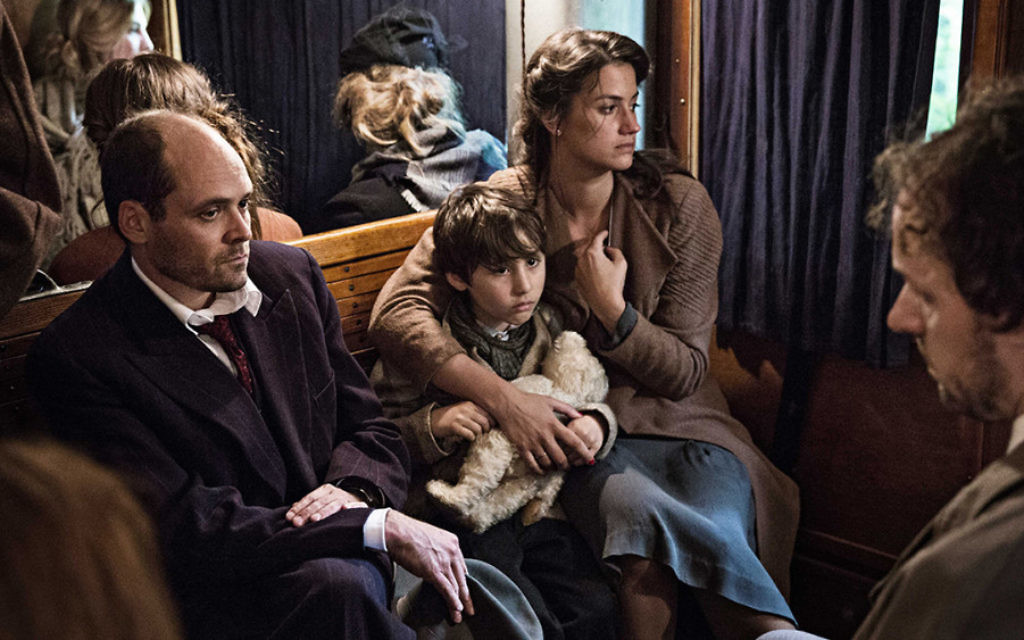AJFF: No Sugarcoating Across Danish ‘Waters’

By Rachel Fayne Gruskin
Nicolo Donato’s World War II drama “Across the Waters” surprises in its gritty depiction of life on the run for a Jewish family living in Denmark under Nazi occupation in 1943.
The film follows Arne Itkin and his family, who, when faced with deportation to Germany, attempt to flee to the safety of Sweden. But the Gestapo is rarely far behind.
Get The AJT Newsletter by email and never miss our top stories Free Sign Up

The audience watches through the gray lens of war as Arne (David Dencik), his wife, Miriam (Danica Curcic), and their young son, Jakob (Anton Dalgård Guleryüz), navigate both the fear of death and the hope that is almost constantly at their heels. Aided in part by the kindness of Danish citizens and husband and wife Niels and Katrine Borge, the family watches as others are rounded up and deported while they try their best to avoid being found.
The grim scenes of crooked Danish fishermen trying to make a buck off the family’s plight, of narrow escapes through thickets in forests and of the storming of Jews’ homes are here. But they’re balanced with the kindness shown by Danish strangers, the hope of narrow escapes and the enduring spirit of a Jewish family.
This is far from a gratuitous war film.
Moviegoers who appreciate a love story that is not saccharine but is based in truth will enjoy this film. A husband and wife continuing to search for and find each other through the seemingly impossible obstacles created by the Gestapo will touch even the most cynical viewers.
Skip this one if you need a happy ending, though. Although the love story does persevere, the family sees its share of tragedy as the camera takes the audience through the end of the war and eventually out of Denmark. The end is abrupt, but after the last scene, the blow is softened by a photograph you’ll want to see.




comments